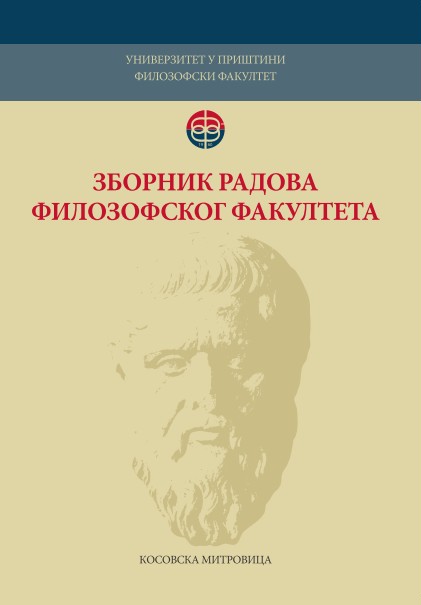Тражење сензација и анксиозност код наркомана
Sensation seeking and anxiety in drug addicts
Author(s): Kristina Ranđelović, Dušan J. Ranđelović, Bojana DimitrijevićSubject(s): Social Sciences, Psychology
Published by: Филозофски факултет, Универзитет у Приштини
Keywords: drug addiction; sensation seeking; anxiety
Summary/Abstract: The aim of the conducted research was to determine the correlation between the dimensions of the sensation seeking and anxiety. Also, it searched for significant differences in the level of expression of the dimensions of the sensation seeking and the anxiety between drug addicts and non-addicts. The sample was intentional (N=70) and it consisted of 35 drug addicts, treated for psycho active substance addiction at the Mental Health Clinic in Niš, and 35 subjects with no symptoms of addiction and without a history of substance abuse treatment, equal in age and educational attainment with a group of drug addicts. Applied instruments included Zuckerman sensation seeking scale (SSS - V), the Spielberger state-trait anxiety inventory - Form Y (STAI) and a survey designed for the research purposes. Statistically significant differences in the expression of the sensation-seeking and general anxiety dimensions between drug addicts and non-addicts were determined. Compared to the non-clinical sub-sample, drug addicts have demonstrated more prominent excitement seeking dimensions as well as boredom sensitivity and general anxiety. What was also established was the statistically significant positive and moderate correlation between the situational anxiety and the excitement and adventure seeking on the sub-sample of non-addicts. The results showed a low and negative statistically significant correlation between the disinhibition dimension and the age of both sub-samples. However, there was a statistically significant negative correlation between the situational anxiety and years of age of the drug-addict subcontract. The obtained results have partially confirmed the initial assumptions of the research and opened new questions about sensation seeking and anxiety in drug addicts, and how they are all connected. The practical implications of the conducted research are reflected in the possibility of applying the obtained results in advisory and therapeutic work with drug addicts in order to establish a better quality of life and better healing prognosis. These results could be put to use by clinical psychologists in their practice in an attempt to improve the quality of health care and provide psycho-social support to all patients treated for addiction. A good insight into the problem of research and the establishment of links between these concepts should improve existing knowledge and create a suitable foundation for the establishment of new preventive programs for addiction diseases.
Journal: Зборник радова Филозофског факултета у Приштини
- Issue Year: 48/2018
- Issue No: 1
- Page Range: 229-247
- Page Count: 19
- Language: Serbian

